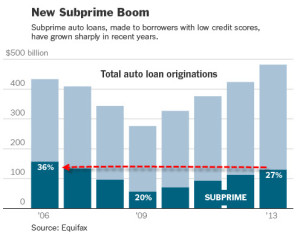The class of 2015 is reaching new heights, though perhaps not the way it had hoped.
College graduates this year are leaving school as the most indebted class ever, a title they’ll hold exclusively for all of about 12 months if current trends hold.
The average class of 2015 graduate with student-loan debt will have to pay back a little more than $35,000, according to an analysis of government data by Mark Kantrowitz, publisher at Edvisors, a group of websites about planning and paying for college. Even adjusted for inflation, that’s still more than twice the amount borrowers had to pay back two decades earlier.
This will not end well. Do not take out a student loan. If you have one already, pay it off as quickly as possible.

